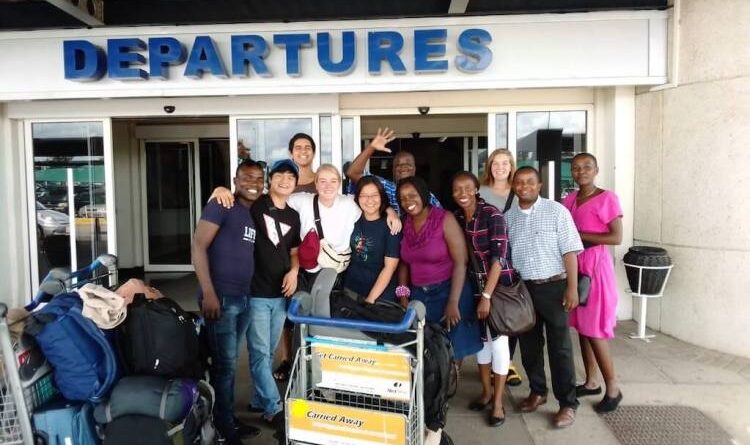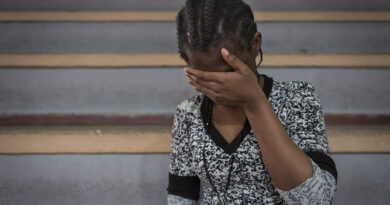Zimbabwean students studying abroad returning with worthless degrees: ZIMCHE
…Tells parents to do thorough research before sending their children abroad
The Zimbabwe Council for Higher Education (ZIMCHE) has issued a warning to parents and guardians, urging them to exercise due diligence and consult the regulatory body before investing thousands of dollars to send their children to study abroad.
The call comes amid a rising number of cases of local students, who study abroad only to return with qualifications from foreign institutions that are not recognised in Zimbabwe, leaving their degrees worthless and their career prospects in limbo.
The council has reaffirmed that Zimbabwe’s own 21 universities offer degrees that are comparably favourable with any other institutions globally, as they provide a robust, quality-assured education that aligns with the nation’s developmental goals and is globally benchmarked.
In an extensive interview with Zimpapers, ZIMCHE chief executive officer, Professor Kuzvinetsa Peter Dzvimbo, detailed the council’s role and the growing concern over local students falling victim to unaccredited foreign institutions.
“Our main function is to work with universities and our Ministry of Higher Education to look at the quality of the degree programmes that are offered in our universities.
“We are the organisation that works very closely with our universities to ensure that the teaching and learning and research and innovation that takes place in our institutions of higher education is of the highest quality,” said Prof Dzvimbo.
Without mentioning specific institutions or programmes, he revealed the distressing trend of students and parents, who discover late that their costly international qualifications are invalid when they return to Zimbabwe.
“Now, one of the important things is that before parents send their children abroad, they should come and check with us because we want to tell them and make sure that the university that they are going to is actually recognised in its own country,” said Prof Dzvimbo.
“If it’s not recognised, your son or your daughter will not be able to work in this country.”
He highlighted the emotional and financial devastation that this causes.
“It’s a traumatic exercise for both the child and the parent as they spend a lot of money. We have had people who come back to us and say, ‘I didn’t know this particular institution was not recognised’.
“The institution we went to is not even recognised in its own country. So, you cannot have credit for that particular degree programme,” he said.
To combat this, ZIMCHE is embarking on a public awareness campaign.New members who wish to get news updates can follow the Ignite Media Zimbabwe News channel.
“We will continue to work on radio, to work on TV, to download the prints and media and to inform the general public that they must check with us,” he said.
Prof Dzvimbo extended a direct plea to the public to exercise caution before investing in foreign learning.
“Whether that institution is in Europe or whether that institution is here on the African continent or in Asia or Latin America, please check with us,” he pleaded.
“You can send us an email and we will be more than happy to explain to you, and we do not charge for that service.
It’s free.”
Prof Dzvimbo reiterated that Zimbabwe’s higher education system was of good quality as it has championed the quality and breadth of programmes offered in the country’s 21 public and private universities.
“I want to say to our local people, especially our parents and their children, that Zimbabwe has 21 universities. You can compare further, intellectually, professionally, in terms of the depth and breadth of the degree programmes, with any other university in the region, on the continent, and even globally,” he said.
He explained the rigorous quality assurance process that all local degrees must undergo, a system designed to protect the value of every qualification awarded.
“When a university wants to introduce a new degree, say, in pharmacy or in medicine, we put a team together of senior academics. We want you to look at this programme in terms of its depth and in terms of its breadth,” said Prof Dzvimbo.
This process includes physical inspections of facilities.
“We go to the university and look at and examine the equipment, examine the labs, examine the library, we even look at the accommodation of students,” he said.
Prof Dzvimbo said a key innovation ensuring national standards is the ‘Minimum Bodies of Knowledge and Skills’ system.
He further explained that for any given degree, 80 percent of the core curriculum is standardised across all universities, guaranteeing a uniform benchmark of quality.
Institutions then have a 20 percent leeway to add distinctive and innovative specialisations.
“Most of our institutions in this country are what we call comprehensive institutions because they offer the sciences, they offer the arts, they offer performance, and they offer agriculture. So, any degree that you want in this country is available in all our 21 institutions,” he said.
“Parents and students are strongly advised to make ZIMCHE their first port of call before making any significant investment in foreign education.”
This simple, free check could prevent financial loss and personal heartache, while also encouraging the growth and recognition of Zimbabwe’s own world-class higher education sector. Chronicle




